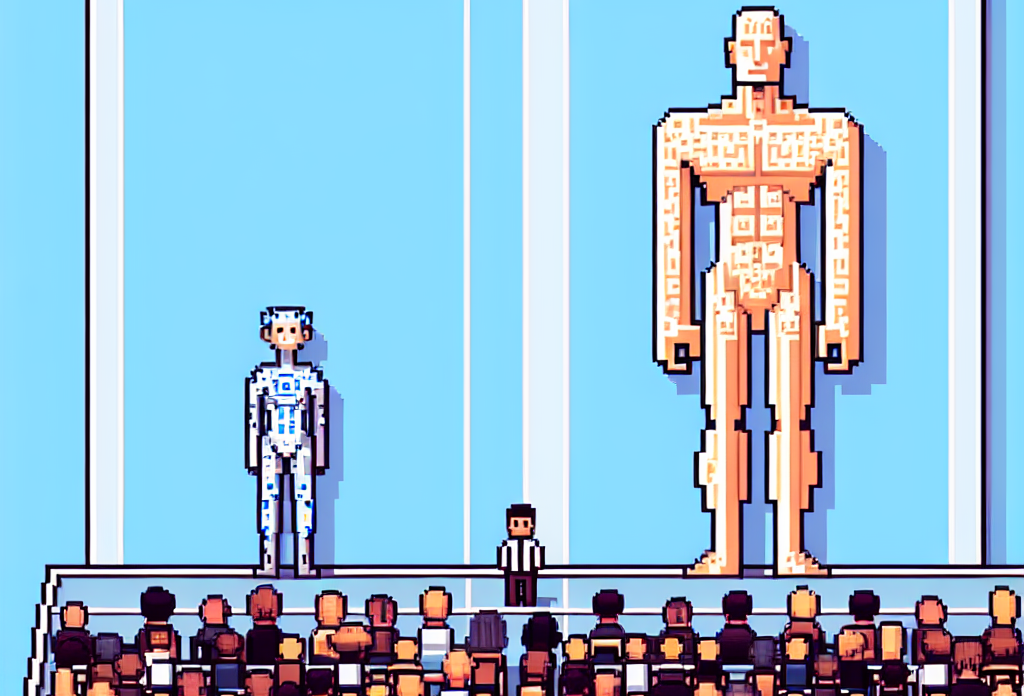The “God model” question stole the show at GenAI Model Training & Inference Innovators Night, and for good reason. Two of the panel’s most influential founders—Ari Morcos, Co-founder & CEO of DatologyAI, and Ehsan Kamalinejad, Co-founder & CTO of Cognichip—offered contrasting visions for the future of AI. Their answers went way beyond theory, rooting every argument in deep technical experience and lessons from the edge of today’s AI research.
How the Panel Unfolded
The format was simple: Rohit Talluri from AWS asked pointed questions; each panelist gave their view. By the time we hit the “God model” question, the room felt electric—these weren’t just opinions, but strategies shaping the next wave of AI-native companies.
Ari Morcos: Why Specialized Models Will (Mostly) Win—And Why Cost Matters
Ari Morcos is no stranger to frontier AI. Before DatologyAI, he contributed to research at Meta AI and DeepMind—his work includes co-authoring the influential paper “On the Importance of Single Directions for Generalization” (NeurIPS 2018), among many others. DatologyAI itself just closed a $46M Series A (AI Business).
Ari’s take was clear: specialized models still outperform general-purpose “God models” on specific tasks, especially when you factor in costs. Even as God models get better, they’ll always be overkill for most real-world needs—both for enterprises running large-scale inference and for most consumer queries.
“A specialized model will always beat the general purpose model on a given specialized set of tasks. … If you know how to do everything when you start, you can get a frontier model for single-digit millions—and that’s going down fast. There’s immense value in harnessing the models we have today, and most open-source models already cover the vast majority of use cases.”
— Ari Morcos
Ari’s practical advice: start with “lite” models trained for specific tasks. It’s more cost-effective, delivers better results, and lets startups iterate quickly. For customization, he recommends leveraging open-source models from places like Hugging Face.
Ehsan Kamalinejad: Why God Models Will Ultimately Prevail (But Layers Matter)
Ehsan Kamalinejad is CTO and co-founder of Cognichip, which recently made headlines with a $33M seed round (Business Wire). Ehsan’s resume is stacked: before Cognichip, he was at Google Research and published pivotal papers on AI robustness and transfer learning—such as “Robust Learning via Support Vector Machines” (NeurIPS 2020).
Ehsan’s answer was passionate and philosophical: the largest models will win on accuracy—eventually. Patterns learned at scale transfer across domains, and God models (large, universal models) will outpace smaller, specialized models over the long run.
“I love to believe there’s a space for smaller models. But the research is clear: the largest model that has seen the most patterns eventually works better. … In the short run, there’s huge opportunity for specialized models, but don’t stop there—layer on more value, because the core model layer will phase out.”
— Ehsan Kamalinejad
Ehsan stressed truth-seeking as a core startup value: be honest about where the technology is heading, but exploit the current opportunities fully. He gave the analogy of medical research: even if we know a long-term breakthrough is coming, that doesn’t mean we should stop innovating today.
Personal Takeaways: Building & Raising with Clarity
Talking with Ari after the panel shifted my own thinking on product strategy—his emphasis on specialized, purpose-built models and open-source customization was a wakeup call for how to build for both speed and cost-efficiency.
With Ehsan, the conversation turned to fundraising. As someone who just closed a massive seed round, his advice gave me new confidence in proving value to investors: focus on your traction and the story you’re building now, even as you keep the long-term vision in sight.
This event made it clear: the God model debate isn’t academic. It’s playing out in every strategic decision founders make today. And the best advice is to listen to both sides, build for what works now, and never lose sight of what’s coming next.
About the Speakers
- Ari Morcos – LinkedIn | DatologyAI
- $46M Series A
- Former Meta AI, DeepMind
- Key papers:
- Ehsan Kamalinejad – LinkedIn | Cognichip
- $33M Seed
- Former Google Research
Takeaways for Founders and Builders
- Specialized models win on cost, iteration speed, and practical outcomes—especially today.
- God models (large, general models) will eventually dominate on accuracy, but only in the long run.
- The smartest founders layer value: use today’s edge, but keep evolving your stack.
- Fundraising? Prove value now—traction matters more than promises.
What do you think?
Have you faced this tradeoff—God models vs. specialized models—in your own work? Drop your experience or DM me on LinkedIn if you want to keep the conversation going.





